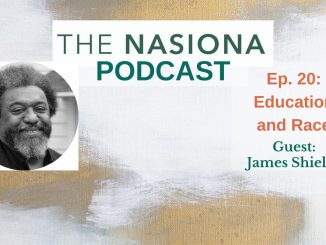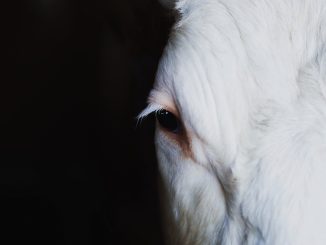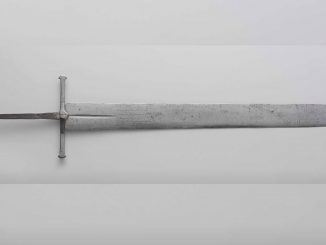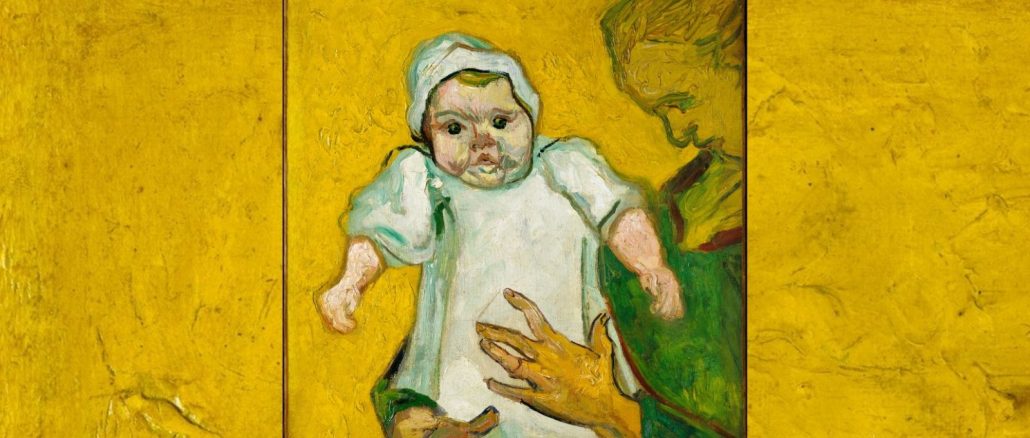
I’m in the kitchen on the phone with my mother when she asks me to stop writing stories about her. There are several in print now and this makes her nervous. Strangers will know her. “Write about yourself,” she says.
I tell her that I’ll be teaching English in prison again this summer. It’s a gig I got through Auburn University in Alabama where I teach fulltime.
“I wish you wouldn’t work at the prison,” she says.
“It’s fine, Mom. None of my students are serving a life sentence.” She doesn’t react, so I say, “Okay, some of them have killed people. But none of them are sex offenders.”
“That’s not very comforting,” she says. “But I guess you’re making their lives better, making them better people.”
“I’m not a saint. I need the money.” It’s hard to know for sure when I’m doing good and when I’m fucking up, so I hesitate to take any credit for anything.
“You don’t need the money,” she says, then quickly changes the subject.
*
“I think Rocco has the soul of a therapy dog,” she says.
“What?” I ask. It’s not like her to talk spiritual. Her mother (my grandmother) is deeply religious. She believes that Jesus is her savior and it’s dignified and lovely, but I don’t think my mother was ever really sure about all that, and I certainly wasn’t raised that way. My mother was a defense contractor who knew certainty could be a liability. And so we were only sure about not being sure. We didn’t grow up talking about God or the afterlife or anything like that, and when I tell my Bible-belt students that I grew up in a secular household they look at me like What is this weird woman talking about? I don’t think they’ve ever even heard the word secular. Maybe that’s for the best. I mean, maybe they’re fine the way they are. They can grow up and be certain. Dignified. Like my grandmother. What seems undignified to me is my mother’s sudden spirituality, aimed as it is at her dog.
“Rocco is just like a therapy dog,” she says. “He walks right up to strangers. He helps people heal.”
“You know any dog can be certified as a therapy dog, right?” I ask. “They just need training.” I’ve had my dog Moose – a rescue, pit mix with a brindle coat that glows orange in the sunlight – for about three years now. My mother just got Rocco about six months ago and she thinks he’s Christ reborn. He’s a St. Bernard with a gray and white coat that still has that fluffy puppy look. She sends pictures of their park visits, snow days, cuddles with the cat, lounging around the house, naps together. I’d never thought of my mother as competing with me but it seems like that’s what she’s doing now.
It’s endearing, of course, but I still feel like I have to remind her that when we were kids she was a horrible dog owner. When she first bought Rocco, I warned her. “You have to take him to the park,” I said. “And for walks. Like every day, every week, Mom. Remember those Shar-Peis we had in high school? People hated coming to our house because those dogs were downright mean. We never took them to the park. Not once. We never walked them. We just let them out back like that was enough. It wasn’t enough.”
I’ve got mommy issues.
“Alyssa,” my mother says. “Write about yourself.”
“What do you want me to write?” I ask.
“Did you know you were a therapy baby?”
“What exactly is a therapy baby?” I ask. “I don’t think that’s a real thing.” I wonder if she’s making it up just so I don’t write about her and the dogs.
“When you were three months old, your grandmother and your great aunt Margaret would take you to the nursing home and let people pass you around. It all started because Margaret’s mother-in-law was there, but they just kept taking you even after that. They took you there for a whole year until you started walking. You were such a calm baby, it made people happy just to hold you.”
I’m thirty-two and just now finding out about this. For about a year of my life, I visited the nursing home every week and brought old people joy. They kissed my skin and smelled the top of my head. You know that smell? My niece has that smell: sort of sweet but also somehow moldy, like after it rains in the spring and the wet leaves are decaying and the fresh buds are blooming. It’s only babies that have that smell. My grandmother and her sister delivered the kindness of that scent and the miraculous elasticity of a new body to all the old people who were having trouble remembering why they were still alive.
Now that I’m in my thirties, I’ve realized that I want a child. Sometimes I want desperately to have a child.
But I love old people. I want to become one. My lover jokes, “You’re the only person I know who looks forward to turning forty.” But I felt the same way about thirty, and twenty. I’m always wishing ahead. Always hoping that time will make me better.
It’s not uncommon for me to read for hours about human longevity, telomeres, the preservation of the connectome in the human brain, foods that fight Alzheimer’s, the relationship between gray hair and genetic decay, the dark matter that’s possibly pulling the universe apart. I’ve spent thirty years trying to become a writer and I want to spend the next thirty studying science.
I’ve always been interested in science, but growing up there was never any sense that I had the intellectual capacity to go to medical school or become an engineer, an astrophysicist. No teacher told me it was possible. No family member thought me capable. If my mother thought I could do it, she sure didn’t say anything about it to me. I’m standing in the kitchen thinking all of this while I’m on the phone with her, but I don’t say it. I don’t tell her that I want to go back to school or change my career, that I worry I’m not that interested in teaching English anymore, that I think maybe I’ve made another big mistake. My constant instability has always scared her, so I pretend I have it all together. I get back at her – I reach for her another way.
I bring it back to the writing.
“Did you catch that essay University of Kentucky published?” I ask. “The one with the list of destructive things I’ve done? You probably don’t remember. I added it at the last minute. Another writer, a friend of mine, he told me to add it. He said I needed to be more vulnerable.” I want to make sure she’d caught the reference to an abortion I’d had in my early twenties, another thing I’ve kept secret from her.
“Oh I remember the list. Papi was upset about it.” Papi is what we call my step-father now that we love him. We used to just call him Dennis. “He was calculating the timing and thinking you had an abortion when you were with Naseem. I told him that it was creative non-fiction. That you might be exaggerating.”
I wondered what kind of experience could be exaggerated into an abortion.
“It wasn’t Naseem,” I say. “It was Nate.” Naseem was my high school sweetheart and long-time friend. Nate is my ex-husband. We’d married (and divorced) young. My mother liked him, I think, but one can never be sure with her.
“I was heading for a doctoral program,” I say. “I have no regrets.”
So now she knows. It wasn’t a lie or an exaggeration or a secret. It was something I did to get what I wanted.
AUTHOR
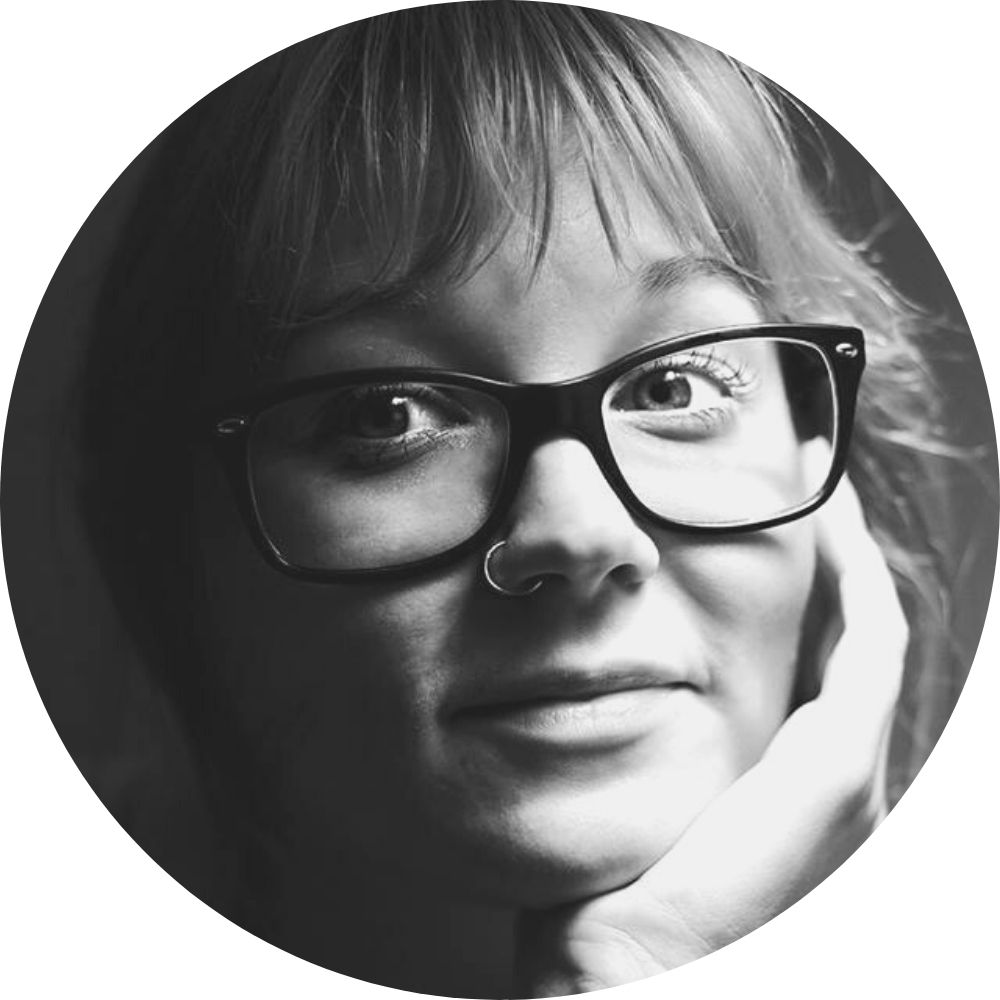
Alyssa Ross
Alyssa D. Ross was born in Guntersville, Alabama, but spent over a decade in Northern Virginia. After abandoning art school in Richmond, she went on to pursue writing. She now holds an MFA from George Mason University and a Ph.D. from Auburn University. She currently teaches writing and literature at Auburn University, in the community, and in the Alabama corrections system.
Featured image: Vincent van Gogh, “Madame Roulin and Her Baby,” oil on canvas, 1888. The Metropolitan Museum of Art.
